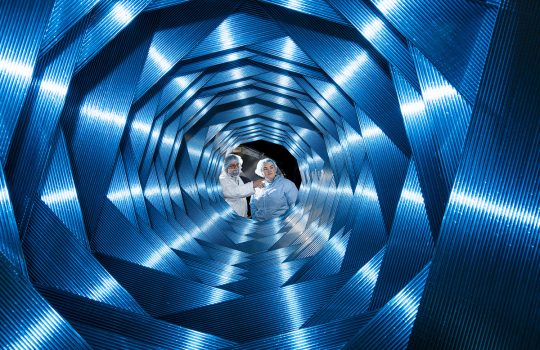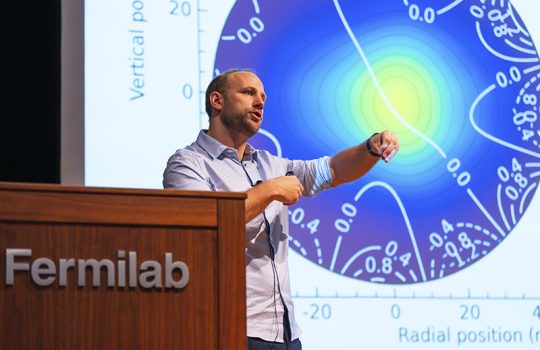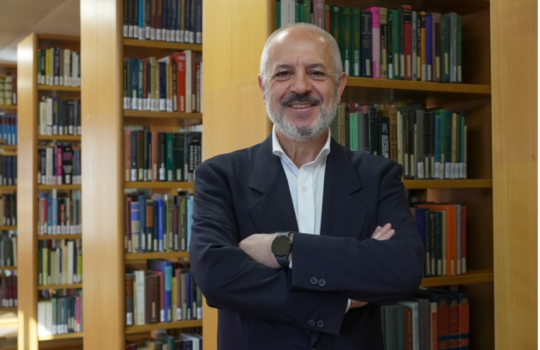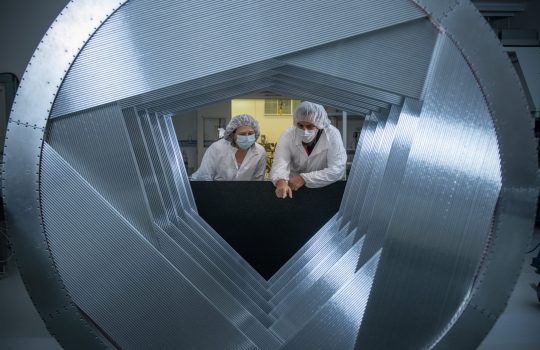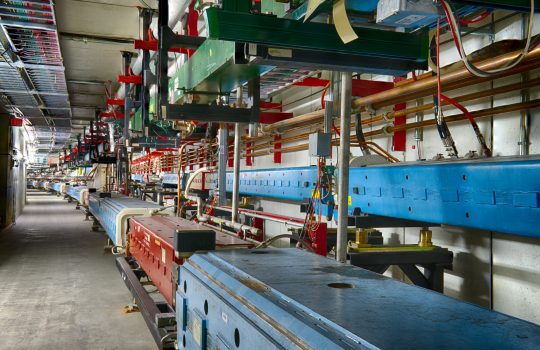US lab’s muon conversion experiment reaches key milestone with tracker installation
Interesting Engineering, February 7, 2026
Fermilab moved the final subdetector for the Mu2e into the experiment hall, marking a major step forward for the collaboration. Once completed, Mu2e will search for a rare muon conversion that may unlock evidence of physics beyond the Standard Model.

